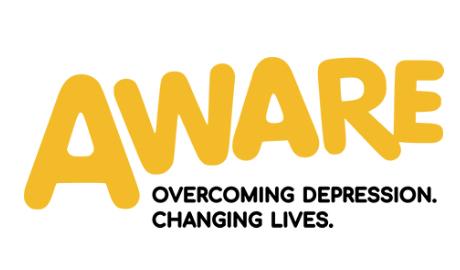Helping Someone with Depression/Anxiety
Depression and anxiety are the most common of all mental health disorders affecting one in four of us in a lifetime.
Signs of Depression
Depression affects people in a variety of ways but the symptoms can usually be grouped under four headings:
1) Thinking
They may think things like “I’m useless, nothing ever goes right, life isn’t worth living”. They might find it hard to concentrate or make decisions
2) Feelings
They might feel unhappy, worried, guilty, angry
3) Behaviour
They may cry a lot, avoid people, forget things, eat more or less, hurt themselves, misuse alcohol and/or drugs
4) Physical Symptoms
They may experience aches & pains in their body, feel tired, have no energy, put on weight or lose weight
Signs of an Anxiety Disorder
As with depression, the signs of anxiety can be grouped under the same four headings:
Thinking
They may think things like ‘something bad is going to happen’, ‘I won’t be able to cope’, or ‘I feel bad so it must be bad’
Feelings
Anxious, fearful, worried, nervous, restless, agitated
Behaviour
Avoiding certain people, places, situations; not going out; only going to places at certain times or only going with someone else or leaving early; increased use of alcohol or drugs
Physical symptoms
Headaches, muscle and/or chest pain, sweating, tingling, numbness, shaking, dizziness, rapid or shallow breathing, rapid heartbeat or palpitations, dry mouth, nausea, vomiting, diarrhoea. Each person is likely to be affected differently and have more problems with some symptoms than others.
Help/treatment for depression and/or anxiety
The two main treatments are talking therapy such as cognitive behavioural therapy (CBT) and self-help. Medication (anti-depressants) is effective for moderate/severe depression or when depression is accompanied by anxiety.
How you can help
As a carer, you may at times feel both hopeless and helpless in the face of your loved one’s illness but depression and anxiety are treatable and the vast majority of people make a full recovery. With a good understanding of the illness you can play an important part in this.
Through a well informed, caring and supportive approach carers can, working alongside the person who is ill and their doctor, speed recovery, prevent relationship and familybreakdown and avoid other potentially negative consequences of the illness such as unemployment, alcohol abuse, financial difficulties or even suicide.
The following tips will be helpful:
- Encourage them to tell you how they feel
- Try to be a good listener – even if you hearthe same thing several times
- Remind them that depression is treatableand is not their fault
- Keep reassuring them that they will getbetter
- Encourage them to get some regularexercise and to eat a balanced diet
- Encourage them to practice relaxationtechniques
- Encourage them to see their GP. Offer toaccompany them to appointments to help them describe their symptoms, or ask any questions they may have, but it’s also important that they have time with the GP on their own
- Help them to avoid alcohol, or at least keep it within safe limits
- Encourage them to reduce their intake of caffeine if they have anxiety
- Take them seriously if they talk about feeling hopeless or suicidal and seek professional help straight away (see below)
How you may be affected
Caring for someone with depression or anxiety can be difficult, stressful and lonely, but help and support are available
You may feel:
- impatient with the person’s behaviour
- exhausted by listening and caring
- isolated from your friends
You may worry about:
- losing the person you knew
- coping and asking for help
- the future, including money problems
- stigma – what other people might be
- thinking or saying
- the person’s safety and the risk of suicide
Taking care of yourself
- Share your worries with trusted friends and family members – but do respect the person’s right to privacy
- Call Aware for information and support
- Don’t struggle on alone; ask for help when you feel you need it
- Make time for yourself and leisure activities
- Make sure you eat well and get enough exercise
- Go and see your own doctor if you find it hard to sleep or are anxious or depressed
- Ask if a family support worker is available
Lifeline is a telephone help and counselling service for anyone in distress or despair. It is available 24/7 and is free from mobiles. Trained counsellors, experienced in issues such as depression, self- harm and suicide will listen and give confidential help and support. They can give immediate support, offer a face-to-face appointment, or signpost you to other services in your area.
Call Lifeline on 0808 808 8000.
Alternatively, you could call your GP, the out-of-hours GP service, or emergency services on 999.















































































